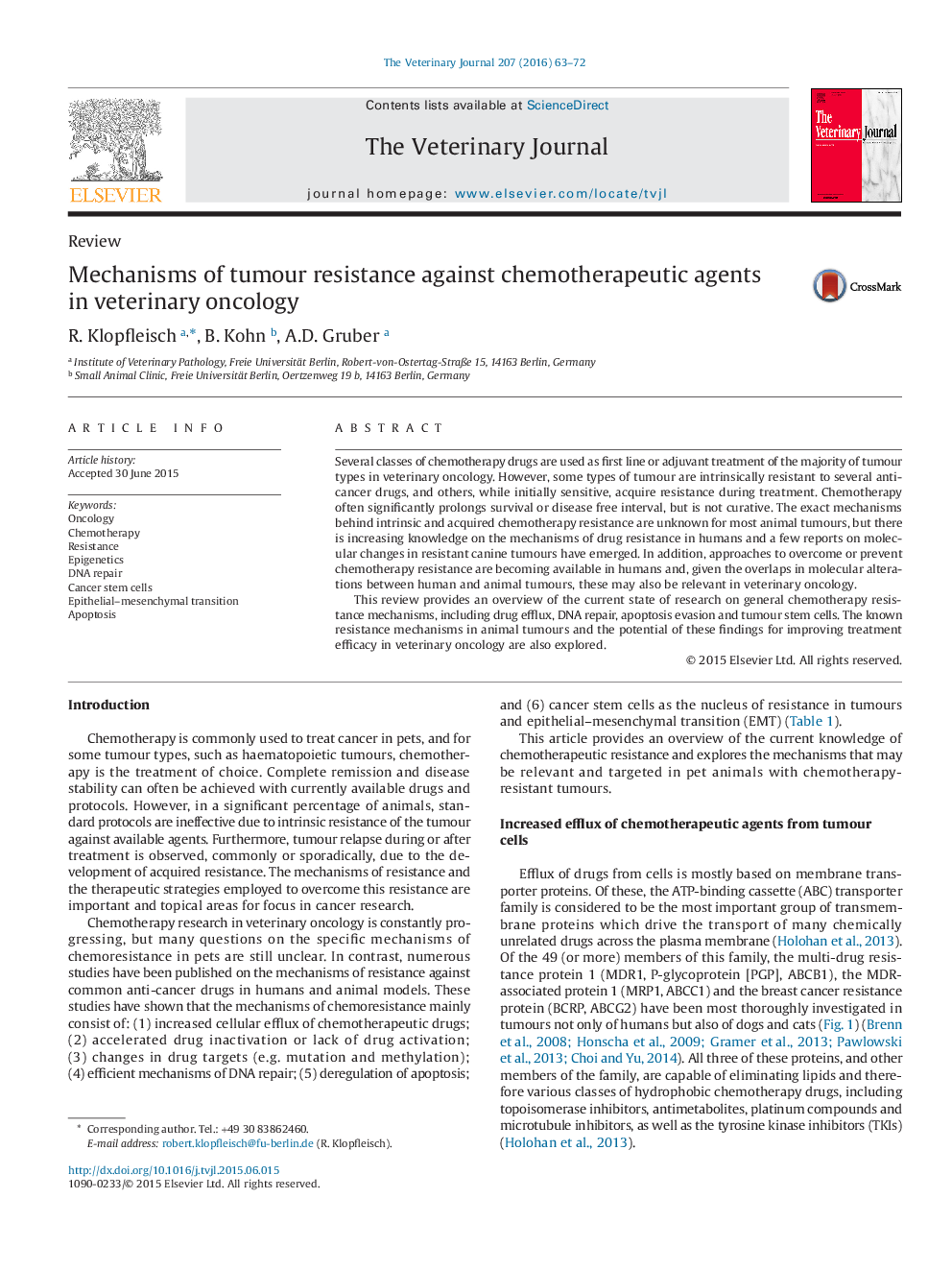| Article ID | Journal | Published Year | Pages | File Type |
|---|---|---|---|---|
| 5797521 | The Veterinary Journal | 2016 | 10 Pages |
â¢Chemotherapy is a major treatment modality in veterinary oncology.â¢Efficacy of chemotherapy is often impacted by intrinsic/acquired drug resistance.â¢Chemotherapy resistance can be due to multiple mechanisms.â¢Molecular data generated in humans can be translatable to pets.â¢New therapies should account for mechanism of drug resistance.
Several classes of chemotherapy drugs are used as first line or adjuvant treatment of the majority of tumour types in veterinary oncology. However, some types of tumour are intrinsically resistant to several anti-cancer drugs, and others, while initially sensitive, acquire resistance during treatment. Chemotherapy often significantly prolongs survival or disease free interval, but is not curative. The exact mechanisms behind intrinsic and acquired chemotherapy resistance are unknown for most animal tumours, but there is increasing knowledge on the mechanisms of drug resistance in humans and a few reports on molecular changes in resistant canine tumours have emerged. In addition, approaches to overcome or prevent chemotherapy resistance are becoming available in humans and, given the overlaps in molecular alterations between human and animal tumours, these may also be relevant in veterinary oncology.This review provides an overview of the current state of research on general chemotherapy resistance mechanisms, including drug efflux, DNA repair, apoptosis evasion and tumour stem cells. The known resistance mechanisms in animal tumours and the potential of these findings for improving treatment efficacy in veterinary oncology are also explored.
